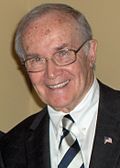Theory

Lobbying, a standard method used to influence or change a piece of legislation, is a common practice at all levels of legislature, including the United States Congress and local legislation. [1] [2] In the U.S., direct lobbying involves direct methods used by a lobbyist when attempting to influence a legislative body. [2] [3] It is done either through direct communication with members or employees of the legislative body, or with a government official who participates in formulating legislation. [3] During the direct lobbying process, the lobbyist introduces statistics that will inform the legislator of any recent information that might otherwise be missed, makes political threats or promises, and supplies favors. [2] [4] A common use of direct lobbying is to persuade the general public about a ballot proposal. In this case, the public is considered to be the legislator. This aspect of direct lobbying attempts to alter the legislature before it is placed on the ballot. [5] Communications regarding a ballot measure are also considered direct lobbying. [6] Direct lobbying is different from grassroots lobbying, a process that uses direct communication with the general public, who in turn, contacts and influences the government. [7] Washington, D.C. is the home to many firms that employ these strategies, with 11,140 registered lobbyists currently residing in the area. [8]
The goals of lobbyist most commonly used are: [9]
- To facilitate market entry through the adoption of new rules, or the repeal or revision of old ones. [9]
- To remove regulatory obstacles to the growth of ones company. [9]
- To stop others from attaining regulatory changes that would harm ones company's business or cause. [9]
According to a meta-analysis, it was discovered that direct lobbying is used alongside grassroots lobbying. [10] There is evidence that groups are much more likely to directly lobby previous allies rather than opponents. [1] Allies are also directly lobbied if a counter lobby is brought to light. [11] The results suggest that groups lobby in ways designed obtain the most influence for their view. [10] When groups have strong ties to a legislator's district, those groups will use a combination of grassroots and direct lobbying, even if the legislator's original position does not support theirs, which may help groups expand their supportive coalitions. [10] When strong district ties are not present, groups tend to rely on direct lobbying with committee allies, because they assume that their political friends will be drawn to participate with the lobbyist view. [10]



